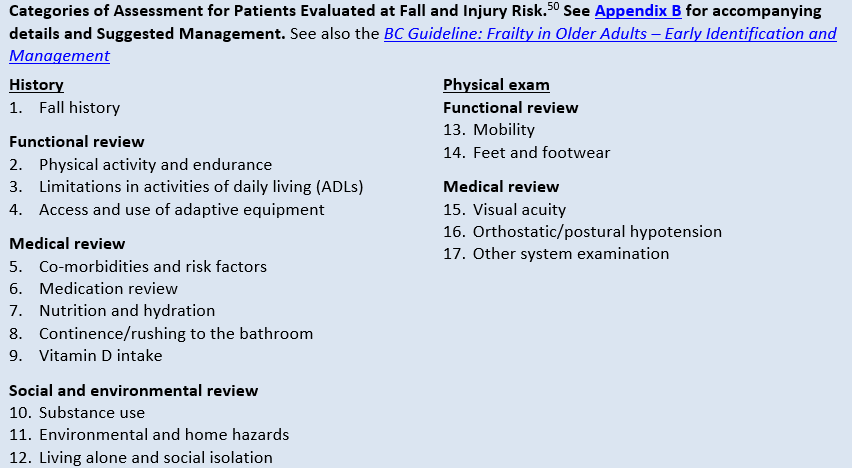An Unbiased View of Dementia Fall Risk
An Unbiased View of Dementia Fall Risk
Blog Article
The Main Principles Of Dementia Fall Risk
Table of ContentsThe Ultimate Guide To Dementia Fall RiskDementia Fall Risk - TruthsDementia Fall Risk - An OverviewNot known Incorrect Statements About Dementia Fall Risk More About Dementia Fall Risk
You could be nervous because you have actually had a fall prior to or since you have actually observed you're starting to really feel unsteady on your feet. You may have seen adjustments to your wellness, or simply seem like you're decreasing a little. Whatever the reason, it isn't uncommon to become mindful and shed self-confidence, and this can quit you doing things you utilized to do and make you feel much more separated.If you have actually had a loss or you've started to feel unsteady, inform your medical professional even if you really feel great otherwise. Your physician can examine your balance and the means you walk to see if improvements can be made. They may be able to refer you for a falls risk evaluation or to the falls avoidance solution.
This details can be gotten through interviews with the individual, their caregivers, and a testimonial of their clinical documents. Begin by asking the individual about their background of falls, consisting of the frequency and situations of any current drops. Dementia Fall Risk. Ask about any kind of flexibility problems they may experience, such as unsteady or problem walking
Conduct a detailed review of the individual's drugs, paying certain interest to those known to increase the risk of drops, such as sedatives or drugs that lower blood pressure. Establish if they are taking numerous medicines or if there have been current modifications in their drug routine. Review the individual's home setting for potential dangers that can increase the risk of falls, such as poor lights, loosened rugs, or absence of grab bars in the shower room.
7 Simple Techniques For Dementia Fall Risk
Overview the individual via the autumn threat assessment type, clarifying each concern and tape-recording their feedbacks properly. Guarantee that the private comprehends the function of the analysis and feels comfortable offering truthful solutions. Determine the overall risk score based on the actions provided in the analysis type. Identify the person's threat group (low, tool, or high) based on the overall score and the visibility of automatic risky status elements.
This plan may consist of workout programs to enhance toughness and balance, drug changes, home adjustments, and references to other experts as needed. Frequently keep an eye on the person's development and reassess their threat of drops as needed. Change the care plan based on modifications in their health condition or home environment. Offer continuous education and support to promote safety and security and lower the danger of drops in their day-to-day living tasks.
Lots of research studies have shown this content that physical therapy can help to reduce the risk of dropping in grownups ages 65 and older. In a brand-new research study (that checked out drops danger in women ages 80 and older), researchers calculated the financial influence of selecting physical therapy to stop falls, and they found that doing so conserves $2,144, consisting of all the covert expenses of your time, pain, missed life events, and the dollars spent for services.
An Unbiased View of Dementia Fall Risk
Examining your balance, strength, and walking capacity. A home safety evaluation. Based on the analysis results, your physical therapist will make a plan that is tailored to your certain demands.
Older adults who have trouble strolling and talking at the exact same time go to a greater threat of falling. Dementia Fall Risk. To assist boost your safety and security during everyday activities, your physical specialist might design a training program that will challenge you to preserve standing and strolling while you do an additional job. Examples include walking or standing while counting backwards, having a discussion, or lugging a bag of grocery stores
Establish objectives for raising their physical task. Work out more to increase their toughness and equilibrium. These programs often are led by volunteer coaches.
Some Of Dementia Fall Risk

Measles, or rubeola, is a click this highly contagious, acute viral infectious disease brought on by the measles infection. Some individuals consider measles as simply a breakout and high temperature that improves in a few days; however, measles can create significant wellness issues, particularly in youngsters younger than 5-years-old. The very best defense against measles is the measles, mumps, and rubella (MMR) vaccination.
Autumns are a common reason of injury amongst older grownups.
The 2-Minute Rule for Dementia Fall Risk

She has no history Full Article of falls, her stride is stable, and she voids with no concerns. The previous registered nurse states that she calls for aid to the bathroom when she needs to go.
Instances of common loss interventions/measures include: Guaranteeing a patient's vital items are within reach. Beyond comprehending exactly how to use the Johns Hopkins Autumn Threat Evaluation Tool, it's crucial that facilities integrate its use into a more extensive loss prevention plan.
Report this page